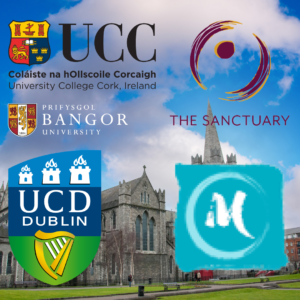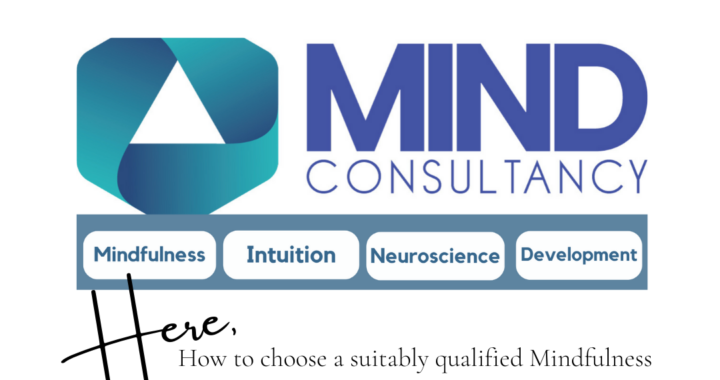Across social media, every second holistic practitioner seems to call themselves a mindfulness teacher nowadays, despite said practitioners not meeting the minimum training standards set by the Mindfulness Teachers Association of Ireland (MTAI) or having any recognised formal mindfulness training. Furthermore, practitioners who lack awareness of what mindfulness is is rampant – for example, claiming that mindfulness is a form of therapy or relaxation technique. Mindfulness is not therapy, and we do not practice mindfulness to relax – I’ll delve deeper into this later.
Unfortunately, mindfulness as a profession is not regulated in Ireland. Therefore, anyone can call themselves a mindfulness teacher, so it’s important to remember when choosing a mindfulness teacher that titles alone do not guarantee qualifications or a safe and evidenced-based approach by the practitioner. I believe claiming to be a qualified mindfulness teacher without adequate training is unethical, misleading, and dangerous.
So, how can we tell if someone has the necessary training and awareness of a responsible mindfulness teacher?
I have set out three important and practical considerations to help you choose a mindfulness teacher confident that she/he has the credentials to ensure you are in safe hands.
1. They are a member of the Mindfulness Teachers Association of Ireland (MTAI)
 The MTAI is the professional body representing qualified mindfulness teachers in Ireland. All members are qualified mindfulness teachers and uphold the MTAI’s guidelines for good practice. Teachers are also committed to the ethical foundations underpinning the teaching of Mindfulness-Based Interventions (MBIs). Therefore, the MTAI is a great place to start to ensure your mindfulness teacher is qualified, upholds the integrity of mindfulness-based interventions, and follows ethical standards. Here is the link to the MTAI website
The MTAI is the professional body representing qualified mindfulness teachers in Ireland. All members are qualified mindfulness teachers and uphold the MTAI’s guidelines for good practice. Teachers are also committed to the ethical foundations underpinning the teaching of Mindfulness-Based Interventions (MBIs). Therefore, the MTAI is a great place to start to ensure your mindfulness teacher is qualified, upholds the integrity of mindfulness-based interventions, and follows ethical standards. Here is the link to the MTAI website
 2. Ask about Training Credentials.
2. Ask about Training Credentials.
Just because a teacher is not listed on the MTAI website doesn’t mean that they have not completed the training requirements set by the MTAI. All qualified mindfulness teachers undergo deep and intensive training.
Initially, there is a requirement to complete the 8-week Mindfulness-Based Stress Reduction (MBSR) program as a prerequisite to training. Attaining adequate qualifications usually requires completing an 18 – 24-month curriculum. Teachers are taught evidence-based interventions and approaches and must have a committed daily mindfulness practice. Training also requires the completion of written and practical examinations to ensure their knowledge and practice meet the standards required of a professional mindfulness teacher. Furthermore, a qualified teacher will have made a substantial financial commitment to attain their training, usually in the region of €5,000 – €20,000, depending on their training level and the institution they attended.
As said, because not all qualified mindfulness teachers are registered with a professional body like the MTAI, that does not mean they don’t meet the same ethical standards and are committed and experienced teachers. Here is a list of training courses and institutions recognised by the MTAI and meet the professional standards of a qualified mindfulness teacher in Ireland.
- MSc Mindfulness-Based Wellbeing. University College Cork
- MSc Mindfulness-Based Interventions. University College Dublin
- Diploma in Teaching Mindfulness-Based Interventions. The Mindfulness Centre for Professional Training Ireland, Dublin
- MBSR Teacher Education. The Centre for Mindfulness in Medicine Healthcare and Society – University of Massachusetts Medical School.
- Teaching Mindfulness-Based Courses. The Centre for Mindfulness Practice and Research, Bangor University, Wales
- Breathworks, UK
- MBLC (Mindfulness Based Living Course) Teacher Training – The Sanctuary, Dublin
You can contact the practitioner and ask about their training credentials and insurance – committed and qualified teachers will gladly share.
3. Mindfulness is not therapy or a relaxation technique.
Although qualified, accredited therapists (for example, psychologists and psychotherapists accredited by the Psychological Society of Ireland (PSI) and the Irish Association for Counselling and Psychotherapy (IACP)) can include mindfulness interventions as part of their practice, mindfulness itself is not therapy.
Instead, mindfulness-based interventions support us to:
- Live intentionally in the present moment.
- Strengthen the attitudinal muscles that support our well-being.
- Place attention on what supports skilful responses to what is happening within and around us.
- Identify habitual patterns that increase stress and hinder well-being.
- Become more responsive and less reactive to whatever is present, internally and externally.
- Develop healthier relationships with ourselves and the world around us.
One of the many reasons that prompted me to write this post was because I recently saw an advertisement for mindfulness classes in a local education centre promoting the classes as ‘relaxation techniques.’ One of the first things a qualified mindfulness teacher will tell you is that mindfulness has nothing to do with relaxation – yes, relaxation may indeed be a by-product of mindfulness practice. Still, we don’t practice mindfulness to become more relaxed. Therefore, that screams an individual offering services they are not qualified to give and do not practice either – that’s worrying.
Even more worrying is that the public population who attend these classes are under the illusion that they are in the hands of a qualified professional. The person offering mindfulness to help you relax doesn’t know the first thing about the 2,500-year-old practice. Remember that a skilled and qualified mindfulness teacher will never tell you that mindfulness is relaxation therapy.
Another thing a skilful and practised mindfulness teacher will inform right from the beginning is that mindfulness is not therapy, and not all mindfulness teachers are therapists either – a separate qualification, like psychology, psychotherapy or a clinical qualification, is necessary for an individual to apply mindfulness-based interventions in therapy.
Therefore, incorrect, misinformed, and misleading information builds public confusion. It deprives individuals of the benefits of mindfulness at best; at worst, the unskilled practitioner can do much more harm than good.
If this post sounds like I am annoyed, it’s because I am.
Offering services without the credentials, training or experience to hold space for vulnerable individuals is dangerous and unfair. Not enough people are talking about the subject, perhaps due to a lack of awareness.
- So, if you are an individual seeking a reputable mindfulness teacher, follow up on their credentials and know that they must have the appropriate training like those set out above.
- If you are listing yourself as a mindfulness teacher without having made the investment in adequate training, please turn toward your ethical responsibility and duty of care to your clients and stop calling yourself a mindfulness teacher. Stop calling mindfulness therapy and stop telling people that mindfulness is a relaxation technique – it’s not.
- If you are a fellow mindfulness teacher who has given the time and financial commitment to your training, I salute you. Please reach out and say hi.
I hope this post has given you some clarity and direction to choose a suitably qualified mindfulness teacher who holds adequate credentials and applies evidenced-based approaches and interventions to ensure you are in safe hands as you embark on the life-enhancing practice of mindfulness.
Warmly,
Hilary Connor, MSc H Dip Adv Dip PG Cert MTAI EMCC
Mindfulness-Based Wellbeing Consultant & Coach. MBSR Teacher.
 Hilary completed a Master of Science in Mindfulness Based Well-Being at University College Cork (UCC) with First Class Honours.
Hilary completed a Master of Science in Mindfulness Based Well-Being at University College Cork (UCC) with First Class Honours.
She also holds a PG Cert in Building Workplace Resilience and HDip in Coaching & Coaching Psychology, both with First Class Honours from UCC.
She teaches mindfulness, MBSR, workplace resilience, and coaching programmes, all supporting people to enhance well-being, reduce stress, and live a life they love.
